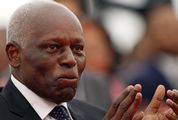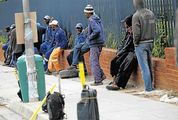Qrent offers to help put rented computers in schools
by Katy Chance,
2015-05-12 06:32:11.0
TOO often, says DJ Kumbula, when firms donate computers to a school, the machine is "shot", not working and not maintained. With the Qrent model, that would not be the case.
"We currently have more than 250 schools in Zimbabwe on our books," he says. "The government said ‘please computerise our schools’.
"When we said there would be no cash paid up front but that the rental would be collected from school fee levies and paid to us over three years, they took us up on it immediately."
Kumbula, the CEO of Qrent, has a dream, an honourable and highly workable one: he wants to do the same for SA’s schools. He admits, though, that engaging with the government around schools has been difficult. Not only is it highly regulated but there is that ever-present prejudice about "liking things new".
"We are willing to engage with the right audience and on the right platforms. We have made it work in Zimbabwe, a country with a shrinking economy; I am sure we can make it work here."
He says private schools can go to computer rental firm Qrent directly and the corporate sponsors working with nongovernmental organisations in the educational space "should be lining up" for its services.
"I’ve done a white paper on the subject and am hoping to go to donors and agencies. Almost all corporates have CSI (corporate social investment) initiatives but struggle getting the right things to the right people as it’s not their core competence. Let us do it for you.
"I’ll identify the schools, Qrent will take the responsibility of deploying the machines and training the teachers; all you have to do is pay the rental. Qrent will be a CSI fulfilment partner — not a middle-man."
InnoVent has 4% of its shareholding in a Section 21 company that "focuses on financing talented students in the fields of finance and IT" and helping them secure jobs after graduation.
Kumbula is determined to roll this model out en masse. "The numbers are so huge I want to work on educational programmes rather than ad hoc projects. I will do the work; the corporates can cut the ribbons."
Another route he envisages is engaging with international donors through philanthropic foundations in SA and throughout Africa, almost all of which have improvement in education as part of their mandate.
"A lot of these foundations come here and employ people to set up the infrastructure of computerising schools — erecting warehouses and hiring technicians — and so spend half their money on capacity building before they even get near a school.
"I already have that infrastructure; I have the product, the financing model and the technicians. We need to talk," Kumbula says.

Picture: THINKSTOCK
TOO often, says DJ Kumbula, when firms donate computers to a school, the machine is "shot", not working and not maintained. With the Qrent model, that would not be the case.
"We currently have more than 250 schools in Zimbabwe on our books," he says. "The government said ‘please computerise our schools’.
"When we said there would be no cash paid up front but that the rental would be collected from school fee levies and paid to us over three years, they took us up on it immediately."
Kumbula, the CEO of Qrent, has a dream, an honourable and highly workable one: he wants to do the same for SA’s schools. He admits, though, that engaging with the government around schools has been difficult. Not only is it highly regulated but there is that ever-present prejudice about "liking things new".
"We are willing to engage with the right audience and on the right platforms. We have made it work in Zimbabwe, a country with a shrinking economy; I am sure we can make it work here."
He says private schools can go to computer rental firm Qrent directly and the corporate sponsors working with nongovernmental organisations in the educational space "should be lining up" for its services.
"I’ve done a white paper on the subject and am hoping to go to donors and agencies. Almost all corporates have CSI (corporate social investment) initiatives but struggle getting the right things to the right people as it’s not their core competence. Let us do it for you.
"I’ll identify the schools, Qrent will take the responsibility of deploying the machines and training the teachers; all you have to do is pay the rental. Qrent will be a CSI fulfilment partner — not a middle-man."
InnoVent has 4% of its shareholding in a Section 21 company that "focuses on financing talented students in the fields of finance and IT" and helping them secure jobs after graduation.
Kumbula is determined to roll this model out en masse. "The numbers are so huge I want to work on educational programmes rather than ad hoc projects. I will do the work; the corporates can cut the ribbons."
Another route he envisages is engaging with international donors through philanthropic foundations in SA and throughout Africa, almost all of which have improvement in education as part of their mandate.
"A lot of these foundations come here and employ people to set up the infrastructure of computerising schools — erecting warehouses and hiring technicians — and so spend half their money on capacity building before they even get near a school.
"I already have that infrastructure; I have the product, the financing model and the technicians. We need to talk," Kumbula says.




















Change: 0.40%
Change: 0.47%
Change: -0.49%
Change: 0.53%
Change: 1.03%
Data supplied by Profile Data
Change: 1.71%
Change: 1.28%
Change: 0.40%
Change: 0.00%
Change: 1.64%
Data supplied by Profile Data
Change: -1.27%
Change: 0.00%
Change: 0.05%
Change: -0.08%
Change: 0.35%
Data supplied by Profile Data
Change: -0.02%
Change: 0.21%
Change: -0.06%
Change: 0.53%
Change: 0.70%
Data supplied by Profile Data